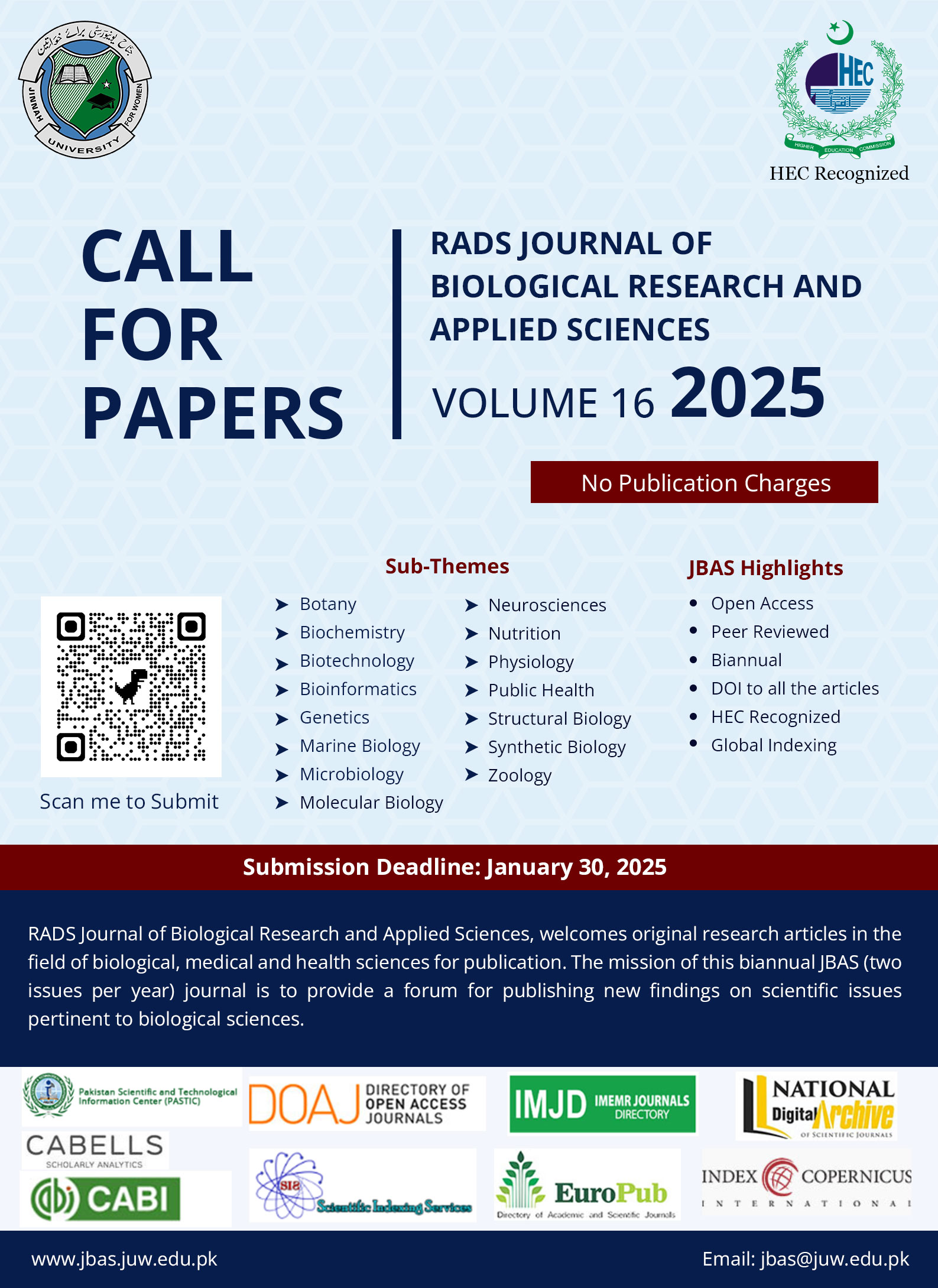Qualitative Analysis of Biofilm Formation and Control of E.coli, Pseudomonas and Candida species
Keywords:
biofilm, disinfectant, resistance, xenicAbstract
Biofilm formation in food processing industry may lead to several chronic diseases such as typhoid, shigellosis, listeriosis, cholera etc. The monitoring and control of pathogens in processing lines are crucial in order to avoid contamination of products. Various disinfectants (iodine, methanol, chlorine, dettol) were taken to observe their effect on axenic biofilm and xenic biofilm. The following study evaluated the anti-biofilm effect of disinfectant solutions against single specie and multi species biofilm formation on stainless steel surface. Ten minuteexposure with sanitizing solutions that are iodine, methanol, chlorine and dettol had significantly reduced the cell counts. The resistance against iodine was observed in both types of biofilm and CFU count on single species biofilm was 4.48x10^8 and of the multi species biofilm was5.2x10^8. Methanol showed to be good in killing for single species biofilm while multi species biofilm was resistant to it and it CFU count on macConkey agar was 1.7x10^9. Chlorine and dettol cause total degradation in the cell counts of both types of biofilm. The present study showed that, multi species biofilms are more resistant to disinfection as compared to mono specie biofilm. It ought to be taken into consideration that chemical disinfection technique shall give a fascinating, efficient result and not inflicting any adverse result in human health. Additionally to, the chemical disinfectants like chlorine and dettol, have a progressive role to play in preventing food borne illness.


















